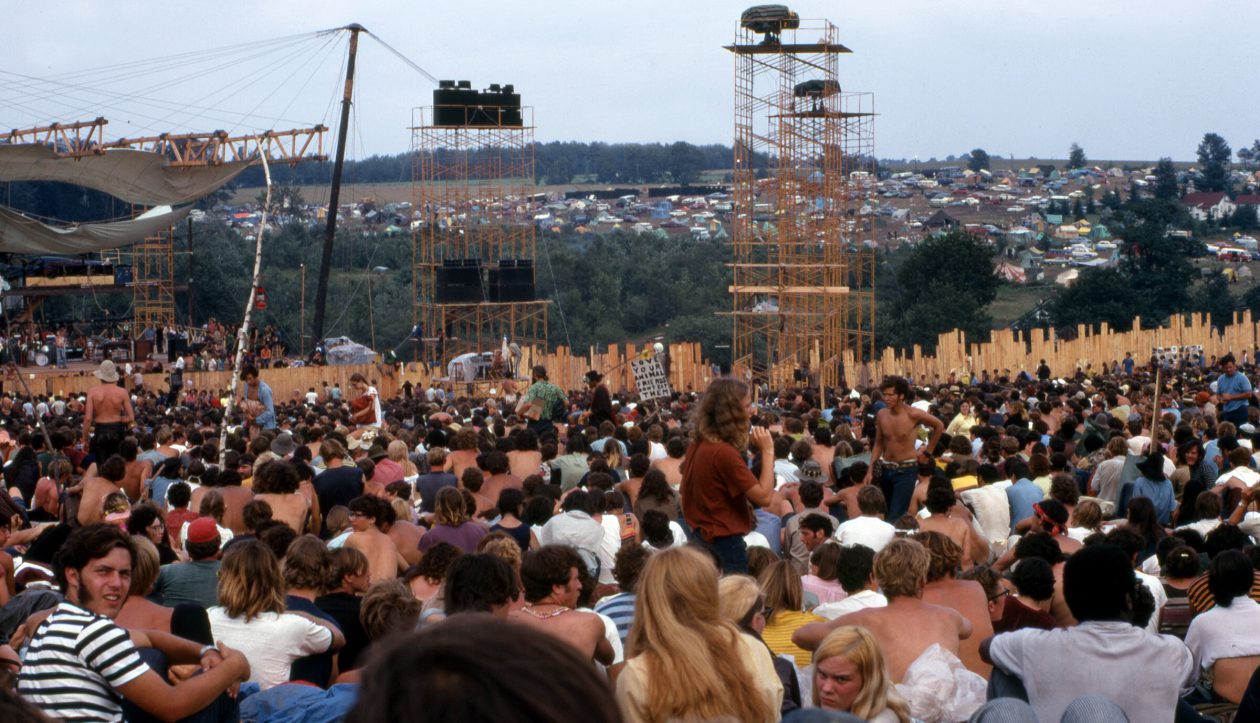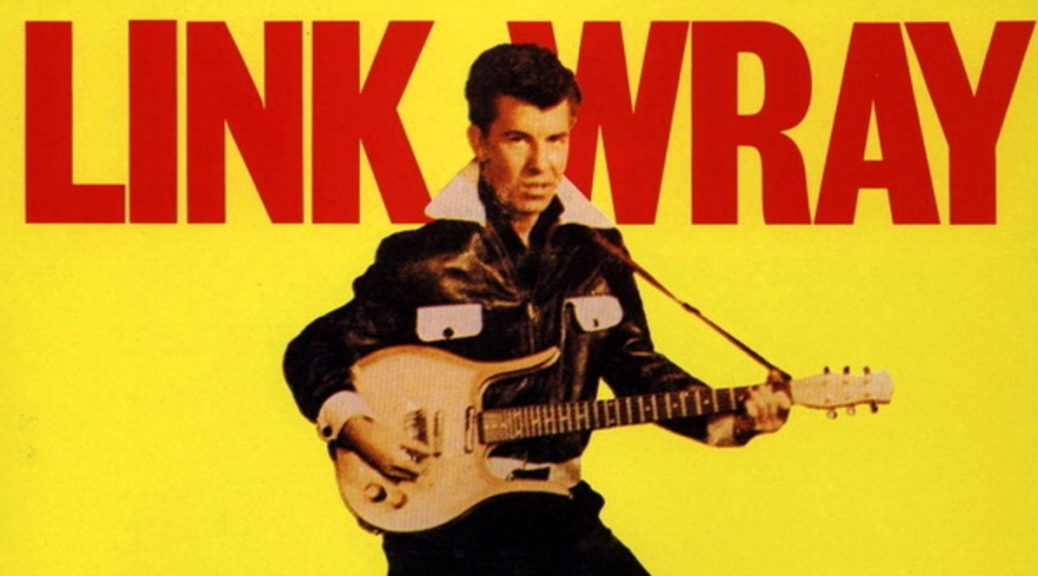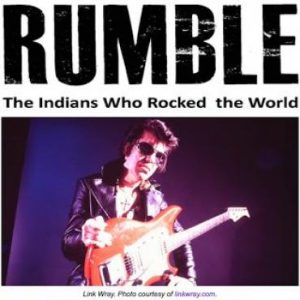Fred Link Wray Rumble
Contributed the power chord to rock and roll
Native Americans Rock
May 2, 1929 – November 5, 2005
When speaking about “Dark Star,” members of the Grateful Dead said that the song is always playing and they simply wade into its river, swim in it, and wade back out after awhile. Put another Grateful Dead way: the music never stopped.
I recently had the good fortune to watch RUMBLE: The Indians Who Rocked the World, a feature documentary about the role of Native Americans in popular music history.
Among the Native Americans featured in this excellent film is Link Wray.
I sometimes fool myself into thinking that I know a lot about rock and roll. After all I’ve been listening to it my whole life, but like any interest, there is always something new to find.
Link Wray was, much to my embarrassment, something new to find.
Fred Link Wray Rumble
Link Wray
Wray was born in North Carolina. Both his parents were Shawnee. He served in the US Army during the Korean War. He lost a lung there to tuberculosis and doctors said he’d never sing again.
Perhaps he didn’t sing that much, but he did play. In 1955 recording for the Starday label as a member of Lucky Wray & the Palomino Ranch Hands. Brother Vernon sang, brother Doug played drums, and Link played guitar. Hillbilly rock.
According to a Guardian article, Wray said, “I was looking for something Chet Atkins wasn’t doing, that all the jazz kings wasn’t doing. I was looking for my own sound.”
Fred Link Wray Rumble
Fuzz tone
“According to a Rolling Stone magazine article, “…legend has it, [that] Wray poked a pencil through the cone of his amplifier to achieve the …groundbreaking fuzz tone.
In 1958, challenged to play a “stroll” for a teenage audience, his drummer began the beat and Wray improvised and began to fuzz tone. Initially referred to as “Oddball,” the song eventually took on the threat of the times and became “Rumble.”
Fred Link Wray Rumble
Fear of Youth
In 1958, American adults feared two things: Communism and juvenile delinquents. Perhaps “JD”s even more with their duck-tail haircuts, knives, and rumbles. Many radio stations, fearful that the song rumble might actually incite a riot, banned the song. One of the only times that an instrumental was banned. Keep in mind the hit play, West Side Story, that reigned on Broadway at that time with it’s Jets and Sharks.
Rumble’s chords are the fountainhead of heavy rock. Pete Townshend stated about Wray, “”He is the king; if it hadn’t been for Link Wray and “‘Rumble,‘” I would have never picked up a guitar.”
The follow-up to Rumble was, what else, Rawhide. More distortion.
https://www.youtube.com/watch?v=dCUaXuvrbFc
Fred Link Wray Rumble
Sanitized…temporarily
As young musicians with a hit have always found, the companies that surrounded them wanted to find a way to monetize their music. Add strings and a classic tune like Moonlight Love (Claire de Lune)
Fred Link Wray Rumble
Rumble Records
It didn’t sell because Wray’s audience didn’t want it. Link and his brother Vern formed Rumble Records.
Jack the Ripper came out of that venture. The 1983 movie Breathless with Richard Gere featured the song. John Waters’ Pink Flamingos, and Quentin Tarantino’s Pulp Fiction also used Wray’s music.
Fred Link Wray Rumble
Lifer
Wray continued to play, but the backwaters of rock music and never got the recognition that so many guitarists like Townshend said he deserved. Just look at Jimmy Page’s face as he listens to Rumble.
Wray married and moved to Denmark in 1980. He did not find much success there. The world of rock occasionally woke up, realized the gem Wray was in rock’s crown, but fell back asleep.
As Cub Koda wrote in an AllMusic bio of Wray, “Link Wray may never get into the Rock and Roll Hall of Fame, but his contribution to the language of rockin’ guitar would still be a major one, even if he had never walked into another studio after cutting “Rumble.”
Fred Link Wray Rumble
Reprise
In the 2000s, he returned to live playing and had performed forty North American dates before he returned home and died in Copenhagen. He was seventy-six. Bob Dylan and Bruce Springsteen both performed “Rumble” onstage in tribute
Link Wray discography via All Music


